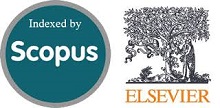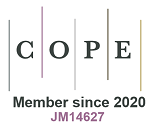Current and Historical Application of Knowledge Management in Economy
Abstract
Full Text: PDF
Keywords
References
Bounfour, Ahmed and Edvinsson, L. “Intellectual Capital for Communities” Oxford (June 25, 2012): 368. doi:10.4324/9780080478562.
Nonaka, Ikujiro, and Hirotaka Takeuchi. "The knowledge-creating company: How Japanese companies create the dynamics of innovation." Oxford University Press, (1995).
Eduardo Tomé “Human Resources, Globalization and Globalization: The Portuguese Case” 8th International Conference on Human Resource Development Research & Practice across Europe, de 26-8 June, (2007).
Becker, Gary S. “Human Capital: A Theoretical and Empirical Analysis, with Special Reference to Education”, University of Chicago Press (1993). doi:10.7208/chicago/9780226041223.001.0001.
Frank, Robert H. "Microeconomics and behavior." Boston: McGraw-Hill Irwin, (2008).
Tomé, Eduardo. "Critical Knowledge Management: An Insight into the Literature." In European Conference on Knowledge Management, pp. 864-XXVII. Academic Conferences International Limited, (2018).
David Ashton and Francis Green. “Education, Training and the Global Economy” Comparative Education Review 41, no. 3 (August 1997): 348–350. doi:10.1086/447457.
B-on. B-online, Available online: https://www.b-on.pt/ (accessed on December 2019).
Tome, Eduardo. “IC and KM in a Macroeconomic Perspective: The Portuguese Case.” International Journal of Learning and Intellectual Capital 5, no. 1 (2008): 7. doi:10.1504/ijlic.2008.018879.
Chagas Lopes, Margarida. "The development of knowledge in Portugal: a slow and unsustainable progress." IUP Journal of Knowledge Management 12, no.3 (2014): 42-61.
dos Santos Ferreira, Vítor Hugo, and Ana Santos. "The impact of knowledge management in innovation performance in the Leiria region." In European Conference on Intangibles and Intellectual Capital, Academic Conferences International Limited, (2014): 24-32.
Rodrigues, Katia, and Eduardo Tomé. "Knowledge cities: A Portuguese case." In Proceedings of the European Conference on Intellectual Capital, Cyprus, (2011): 350-358.
Torres, Ana Isabel, Silvana Santos Ferraz, and Helena Santos-Rodrigues. “The Impact of Knowledge Management Factors in Organizational Sustainable Competitive Advantage.” Journal of Intellectual Capital 19, no. 2 (March 12, 2018): 453–472. doi:10.1108/jic-12-2016-0143.
Teixeira, Eduardo Kunzel, Mirian Oliveira, and Carla Curado. “Linking Knowledge Management Processes to Innovation.” Management Research Review 43, no. 3 (October 5, 2019): 332–349. doi:10.1108/mrr-10-2018-0391.
Santos, Gilberto, Sergio Gomes, Vitor Braga, Alexandra Braga, Vanda Lima, Paulo Teixeira, and José Carlos Sá. “Value Creation through Quality and Innovation – a Case Study on Portugal.” The TQM Journal 31, no. 6 (November 29, 2019): 928–947. doi:10.1108/tqm-12-2018-0223.
Piteira, Margarida, and Jorge Gomes. "The Innovation Lessons: Organizational Narratives of Applied Knowledge in Technology-Based Organizations." In European Conference on Knowledge Management, vol. 2. Academic Conferences International Limited, (2014); 802-810.
Almeida, Fernando, Emanuel Miranda, and João Falcão. “Challenges and Facilitators Practices for Knowledge Management in Large-Scale Scrum Teams.” Journal of Information Technology Case and Application Research 21, no. 2 (April 3, 2019): 90–102. doi:10.1080/15228053.2019.1637087.
Nunes, Frederico, and Carmina Simion. "Knowledge Management Perspectives: The Portuguese MNCs of Romania and Poland." In European Conference on Knowledge Management, vol. 2. Academic Conferences International Limited, (2014): 740-747.
Martins, Dora, and Eduardo Tomé. "Knowledge management in multinational companies: the repatriates’ role in the competitive advantage in subsidiaries." In European Conference on Knowledge Management, vol. 2. Academic Conferences and Publishing International Limited, (2014): 628-636.
Brito, Elisabeth, Leonor Cardoso, and Catarina Ramalho. "Knowledge Management in local government sector: The role of the Quality Certification." In European Conference on Intellectual Capital, vol. 2, (2010): 127-166.
Brito, Elisabeth, and Leonor Cardoso. "Knowledge management processes in the Portuguese local government sector." In Proceedings of the 13th European Conference on Knowledge Management, vol. 1. Universidad Politécnica de Cartagena: Academic Publishing, (2012): 135-151.
Marques, Carla Susana, Gina Santos, Vanessa Marques, and Eleusina Ramos. "The impact of knowledge creation, acquisition and transfer on innovation in the healthcare sector." In European Conference on Knowledge Management. Academic Conferences International Limited, (2018): 494-502.
Cruz, Sofia Gaspar, and Maria Manuela Frederico Ferreira. “Gestão Do Conhecimento Em Instituições de Saúde Portuguesas.” Revista Brasileira de Enfermagem 69, no. 3 (June 2016): 492–499. doi:10.1590/0034-7167.2016690311i.
Lopes-Costa, Jose Alberto, and Antonio Munoz-Canavate. “Relational Capital and Organizational Performance in the Portuguese Hotel Sector (NUTS II Lisbon).” Procedia Economics and Finance 26 (2015): 64–71. doi:10.1016/s2212-5671(15)00839-4.
Oliveira, ER De, and Paula Rodrigues. "Measuring sustainability and sustainable knowledge management: Presenting a case for the tourism sector in Portugal." In Proceedings of the European Conference on Knowledge Management, ECKM 2, no. 1995, (2010): 805-813.
Almeida, Sofia; de Moraes, Michelle Lins; Campos, Ana Cláudia. “Absorptive Capacity, Explicit and Implicit Knowledge Sharing Practices within Consortia.” Proceedings of the 20th European Conference on Knowledge Management (September 5, 2019): 27-32. doi:10.34190/km.19.061.
Eiriz, Vasco, Jorge Simões, and Miguel Gonçalves. "Obstáculos à gestão do conhecimento nas escolas de gestão e economia do ensino superior público em Portugal." Comportamento organizacional e gestão 13, no. 2 (2007): 153-167.
Price, Heather E., and Kristen Weatherby. “The Global Teaching Profession: How Treating Teachers as Knowledge Workers Improves the Esteem of the Teaching Profession.” School Effectiveness and School Improvement 29, no. 1 (November 30, 2017): 113–149. doi:10.1080/09243453.2017.1394882.
Vale, Mário, and Luís Carvalho. “Knowledge Networks and Processes of Anchoring in Portuguese Biotechnology.” Regional Studies 47, no. 7 (July 2013): 1018–1033. doi:10.1080/00343404.2011.644237.
Rădulescu, Ion-Răzvan, Carmen Ghițuleasa, Emilia Visileanu, Ana Dias, Zoran Stjepanovic, Roberto Vannucci, and Mirela Blaga. "Logical and Sequential e-Learning Content for Supporting Specialists in Textile Enterprises." eLearning & Software for Education 3 (2019): 418-424.
Loforte Ribeiro, Francisco. “Enhancing Knowledge Management in Construction Firms.” Construction Innovation 9, no. 3 (July 10, 2009): 268–284. doi:10.1108/14714170910973493.
Mendonca, Joana, Rui Baptista, and Paulo Conde. “A Map of the Knowledge Bases for the Chemical Industry.” International Journal of Technology, Policy and Management 7, no. 3 (2007): 245-262. doi:10.1504/ijtpm.2007.015109.
Rocha, Felipe de Sequeira, Leonor Cardoso, and Nuria Tordera. "The importance of organizational commitment to knowledge management." Comportamento organizacional e gestão 14, no. 2 (2008): 211-232.
Cardoso, Leonor, and Andreia Meireles. "Role of organizational commitment in knowledge management: exploring a relationship." In Proceedings of the 11th European Conference on Knowledge Management, University of Lusiada, Vila Nova de Famalicao, Lisbon, 2-3 September, (2010): 209-217.
Figueiredo, Elisa; Pais, Leonor; Mónico, Lisete. “The Perspective of Human Resource Management Practices as Determinants of Knowledge Management Processes.” Proceedings of the 20th European Conference on Knowledge Management (September 5, 2019): 336-343. doi:10.34190/km.19.240.
Figueiredo, Elisa, Leonor Pais, Samuel Monteiro, and Lisete Mónico. "The Role of Human Resource Management in Knowledge Management: The cases of Training and Career Management." Proceedings of the European Conference on Knowledge Management (2014): 353-361.
Garavan, Thomas, McCarthy, A., & Morley, M. “Global Human Resource Development: Regional and country perspectives.” London: Routledge (February 5, 2016). doi:10.4324/9781315818177.
Tomé, Eduardo. “European Social Fund in Portugal: a Complex Question for Human Resource Development.” Edited by Thomas N. Garavan. European Journal of Training and Development 36, no. 2/3 (April 6, 2012): 179–194. doi:10.1108/03090591211204706.
Tomé, Eduardo. “The European Social Fund: a Very Specific Case Instrument of HRD Policy.” European Journal of Training and Development 37, no. 4 (June 3, 2013): 336–356. doi:10.1108/03090591311319762.
Tomé, Eduardo, and Apoorva Goyal. “Human Capital, HRD and VET: The Case of India.” European Journal of Training and Development 39, no. 7 (August 3, 2015): 586–609. doi:10.1108/ejtd-10-2014-0069.
Page, M., "The First Global Village," (Campo das Letras, 2006). 7th Edition, Lisbon, Portugal, in English ISBN13:9789724613130
Prodata Statistics on Portuguese Education. Available online: https://www.pordata.pt/ (accessed on December 2019).
World Bank, World Economic Indicators, 1975, Washington, USA.
World Bank, World Economic Indicators, 1987, Washington, USA.
World Bank. World Economic Indicators, 2002, Washington, USA.
World Bank, World Economic Indicators, 2018, Washington, USA.
OECD. Education at Glance, 2018, Paris.
European Commission the ESF in Portugal. Available online: http://ec.europa.eu/esf/main.jsp?catId=394 (accessed on 10 July 2019).
European Commission, Structural Funds 2014-2020 (ERDF and ESF) eligibility: Portugal. Available online: https://ec.europa.eu/regional_policy/en/information/publications/maps/2014/structural-funds-2014-2020-erdf-and-esf-eligibility-portugal (accessed on 10 July 2019).
EHEA European Higher Education Area and Bologna Process. Available online: http://www.ehea.info/ (accessed on 10 July 2019).
Parlamento., Constituição da Republica Portuguesa. Available online: https://www.parlamento.pt/Legislacao/Paginas/ ConstituicaoRepublicaPortuguesa.aspx (accessed on 10 July 2019).
DGES, Maiores de 23 anos. Available online: https://www.dges.gov.pt/pt/pagina/maiores-de-23-anos (accessed on 10 July 2019).
Qualifica (2019) Programa Quaiifica. Available online: https://www.qualifica.gov.pt/ (accessed on 10 July 2019).
Esping-Andersen, Gosta. 'The three worlds of welfare capitalism." Princeton University Press, (1990).
Novas Oportunidades 2005-2010. Available online: http://www.novasoportunidades.gov.pt/np4/16 (accessed on 10 July 2019).
Rodrigues, Maria João, ed. "The new knowledge economy in Europe: A strategy for international competitiveness and social cohesion." Edward Elgar Publishing Company, (2002).
European Parliament, The Treaty of Lisbon. Available online: http://www.europarl.europa.eu/factsheets/en/sheet/5/the-treaty-of-lisbon (accessed on 10 July 2019).
Oliveira, Manuela, Carlos Vieira, and Isabel Vieira. “Modelling Demand for Higher Education: A Partial Least-Squares Analysis of Portugal.” European Journal of Higher Education 5, no. 4 (October 2015): 388–406. doi:10.1080/21568235.2015.1084589.
Amorim, José Pedro. “Mature Students’ Access to Higher Education: A Critical Analysis of the Impact of the 23+ Policy in Portugal.” European Journal of Education 53, no. 3 (August 20, 2018): 393–413. doi:10.1111/ejed.12283.
Sin, Cristina, Orlanda Tavares, and Alberto Amaral. “The Impact of Programme Accreditation on Portuguese Higher Education Provision.” Assessment & Evaluation in Higher Education 42, no. 6 (July 3, 2016): 860–871. doi:10.1080/02602938.2016.1203860.
ILOSTAT – Statistics on Employment - Employment by sex and economic activity -- ILO modelled estimates – 2019, 2020. Available online: https://ilostat.ilo.org/topics/employment/ (accessed on 30 October 2020).
Rostow, W. W. “The Stages of Economic Growth” Cambridge University Press (February 22, 1991). doi:10.1017/cbo9780511625824.
Tomé, Eduardo. "Tourism in Portugal–Between the Bubble and the Miracle." In International Conference on Tourism Research. Academic Conferences International Limited, (2018): 151-X.
Eduardo Tomé, Portugal 1974-2014: de um império a uma região numa união monetária. Congresso – Portugal 40 anos de Democracia. Porto, Março, (2014).
DOI: 10.28991/esj-2020-01245
Refbacks
- There are currently no refbacks.
Copyright (c) 2020 Eduardo Tomé







